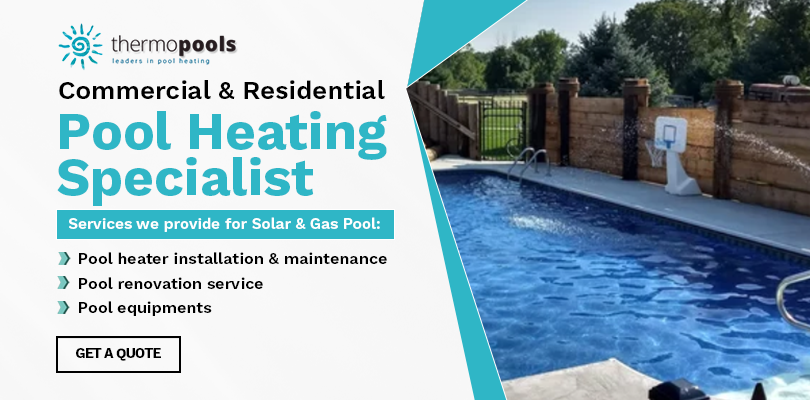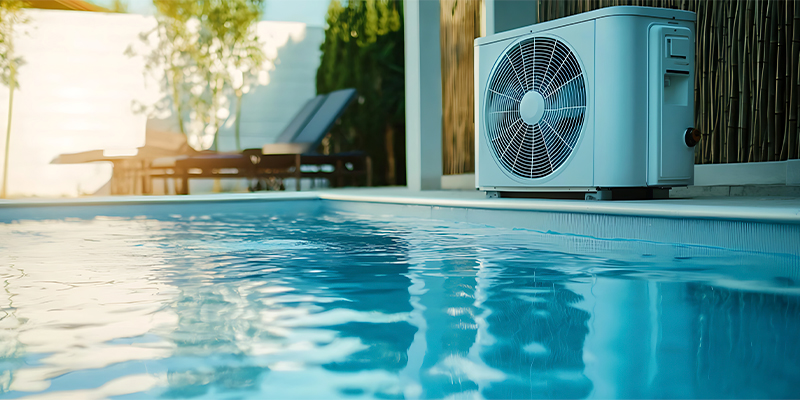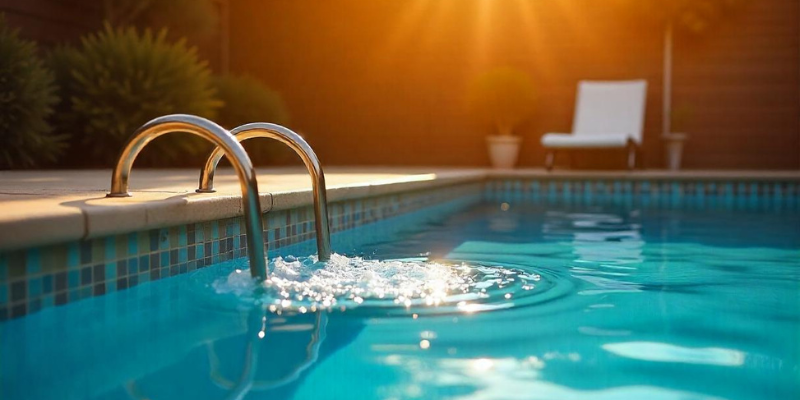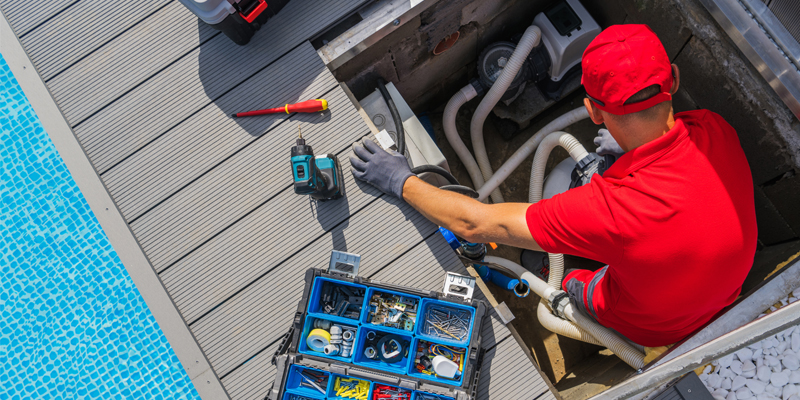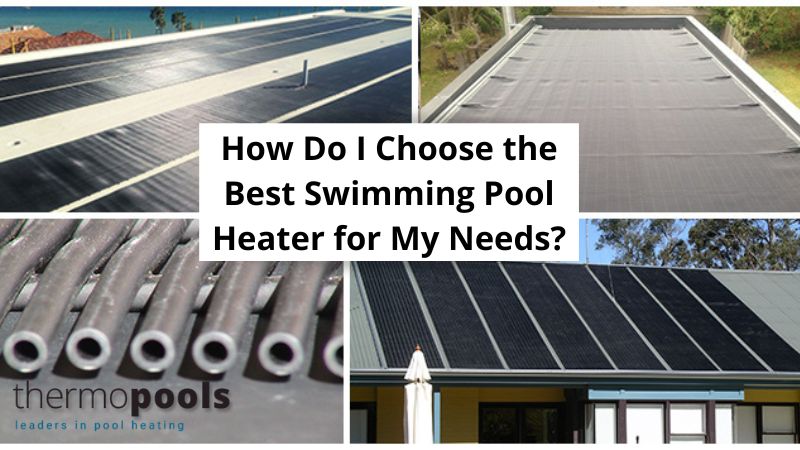
A swimming pool heater can easily prolong your swimming season, helping you enjoy the water at the ideal temperature when needed. Different swimming pool heaters are available on the market, and you need to choose the perfect one for your needs. Understanding how each pool heater works and its advantages and disadvantages are imperative, which will help you select the one that best suits your needs.
How Does A Pool Heater Operate?
A swimming pool heater is classified into three main types:
Gas Heater
Solar Heater &
Pool Heat Pumps (Electric)
A BTU (British Thermal Unit) is the standard of measure for most heating and cooling appliances. In simple terms, it’s the measure of heat required to increase the temperature of a pound of water by one degree.
Let’s understand each pool heater type and its benefits and drawbacks:
Electric Pool Heat Pumps
A heat pump pool heater is inherently electric because it uses electricity to operate but functions differently. A heat pump does not use electricity to produce heat; it uses warm air to heat the water that moves through the pump.
How Does A Heat Pump Work?
The heat pump’s compressor pulls in Freon gas from an evaporator tube, which cools down the pipe, producing hot gas from condensation. And that hot gas moves through the condenser to heat the water by warming the outside of the tubes. The gas is compressed and passes through the coil, blending it with the cooler pool water and pumped via the pump, warming the water. The cycle is repeated while operating, keeping the pool circulating with the warm water it generates. Your refrigerators and air conditioners use the same technology, except these appliances are used to eliminate heat rather than distributing it back through.
Positives:
- The unit and installation costs are less expensive than gas and solar pool heaters.
- It provides consistent operation year-round.
- It can cool down the pool water on hot days.
Negatives:
- It heats relatively slowly.
- Not suitable for colder climates.
- Need electricity to operate.
Solar Pool Heater
Solar pool heating will include solar collectors, pumps, filters and control valves. It works by pumping the pool water via the filter, which passes through the collector where the water gets heated and then is pushed back into the pool. Solar heaters come in two variants, i.e. glazed and unglazed; each has a different use.
Unglazed Solar Pool Heaters: Unglazed solar pool heaters are best for pools that never dip below freezing. They are made from a resistant UV-treated plastic or rubber material and are relatively low priced than glazed pool heaters.
Glazed Solar Pool Heaters: Glazed solar pool heaters are suited for harsher climates as they are more durable. Glazed solar pool heaters are pricier because they are coated with a glass covering. And they are made from costlier materials like copper tubing and are more efficient than unglazed heaters and perfect for year-round use.
Positives:
- Solar energy is freely available.
- Most cost-effective to operate than other pool heaters.
- Lower maintenance costs.
- Solar pool heaters serve you longer, between 12 years to 18 years or more.
- Environmentally-friendly.
Negatives:
- They are less efficient in the evenings and on overcast days, as solar pool heaters depend on the sun’s heat to heat your pool.
- Higher initial cost.
Gas Pool Heaters
A gas pool heating works on natural or LPG (propane) gas and moves water through a combustion chamber that burns the gas, warming the copper coils. The water runs through these warm copper coils and returns to the pool. Before purchasing a gas heater, you should check out the cost of natural gas and LPG in your area. As their expenses differ, they can be pricier to operate in some areas than others.
Positives:
- They are easy to install and have low installation costs.
- Excellent performance; heats the pool relatively quickly.
- Lower maintenance costs.
Negatives:
- It has higher operating costs as the price of gas fluctuates.
- Emissions.
Final Words
Solar pool heaters, gas pool heaters and electric pool heaters have advantages and disadvantages. For instance, solar pool heaters have higher initial purchasing and installation costs but are most cost-effective for long-term use. Gas pool heaters can quickly heat the pool but are pricier to run. Electric pool heat pumps are cheaper than gas and solar pool heaters for initial unit cost and installation cost; however, they heat slower than other pool heaters and are unsuitable for colder climates. So, you must select the type of pool heater depending on your swimming pool usage needs, budget, operational costs and maintenance costs.
If you need help selecting the right swimming pool heater in Sydney, call Thermo Pools at 02 8850 4030 & Check our Google Reviews!, and our expert team will be delighted to assist you.
Also Read: WHY SHOULD YOU CONSIDER SOLAR POOL HEATING SYSTEM?





